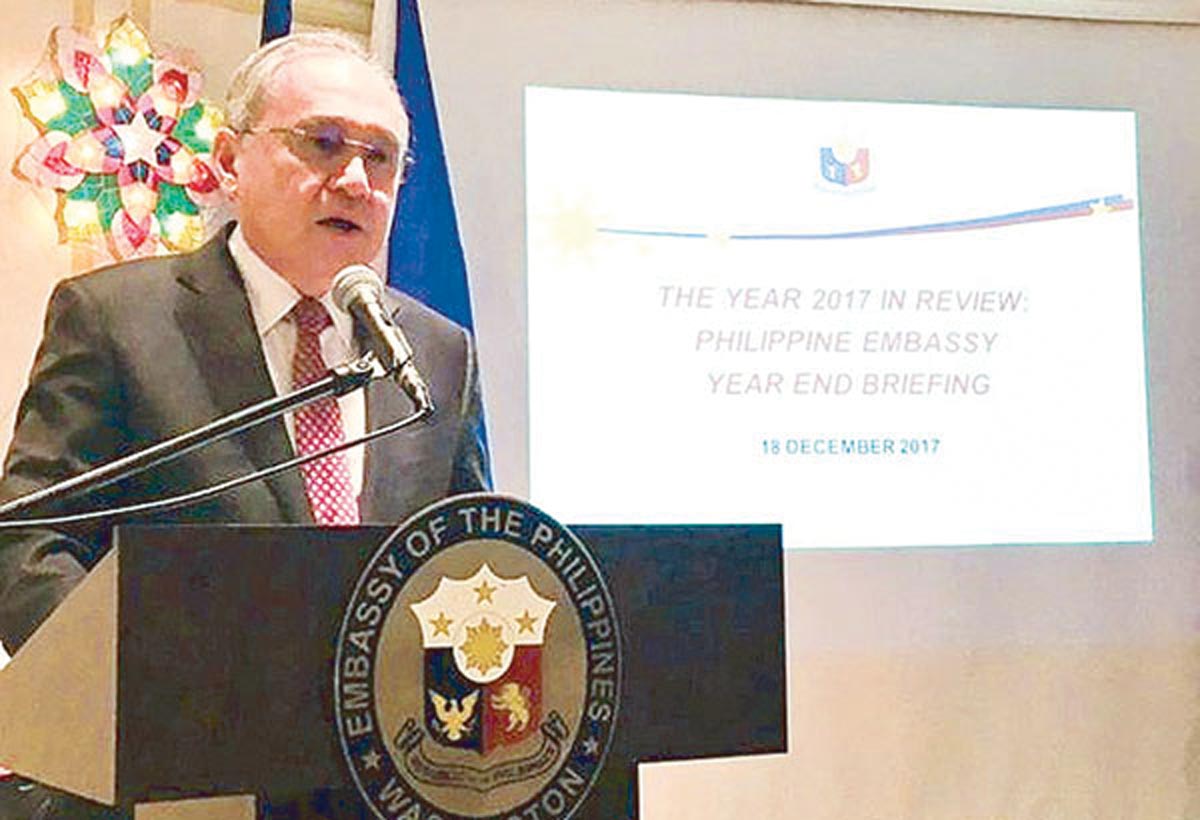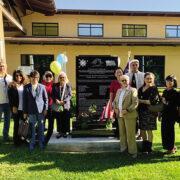
PHILIPPINE Ambassador to the United States Jose Manuel Romualdez on Tuesday, November 17, affirmed the strong ties between the Philippines and the United States.
During a virtual event hosted by the Los Angeles World Affairs Council, Romualdez noted that the Philippines and the U.S. have one of the oldest military alliances in the Asia Pacific region.
“The PH and the U.S. enjoy one of the oldest military alliances in the Asia Pacific, stretching back since 1951. We have the mutual defense treaty, the secure and defense cooperation which remains the cornerstone of our bilateral relations, also our friendship with the U.S. spans decades of cooperation, encouraging strong historical, cultural, and economic ties,” he said.
“Our shared history in culture connects our two governments, the economies, and of course our people-to-people ties,” he added.
Romualdez also said Philippine President Rodrigo Duterte is looking forward to working with President-elect Joe Biden and fortifying the “many comprehensive ties” that the Philippines and the U.S. have between them.
“President Duterte conveyed his warmest congratulations and we assured (Biden) of the Philippines’ commitment to continue building on a strong, open, stable, and prosperous Indo-Pacific region,” the envoy said.
Romualdez stressed that the relationship between the Philippines and the U.S. will remain strong no matter the president.
“The alliance between our two countries remains very strong and it doesn’t matter who the president of either country is,” he said.
“We feel that this relationship is so strong that it has withstood many wars and many conflicts in the past worldwide, and perhaps even some issues we may not agree on, but at the end of the day, because of our special relationship, it has endured,” he added.
Romualdez also expressed optimism that the Philippines will not have any problems with the Biden administration.
VFA termination
According to Romualdez, the dynamics between the Philippines and the U.S. shifted after the U.S. rejected most of China’s maritime claims in the South China Sea.
Early in July, U.S. Secretary of State Mike Pompeo announced that the U.S. stands with its Southeast Asian allies, stressing that Beijing’s claims to offshore resources across most of the South China Sea are “completely unlawful.”
“We all know Secretary Pompeo announced that the U.S. recognized the arbitral award and we were extremely pleased with that. And that has changed the dynamics, as far as our relationship is concerned with the U.S.,” Romualdez said.
“I think there is now a stronger commitment in our mutual defense treaty. There seems to be some teeth to it now,” he added.
However, Romualdez maintained that the Philippines is a sovereign nation, and that the country wants to strengthen its own armed forces.
“You have to have a mutual defense treaty but we also want to strengthen our own armed forces. We want to be able to contribute to that defense treaty,” he said.
“We want to be able to defend ourselves but when the time comes — and we certainly hope it will never come — is that we need to be together and repel any kind of aggression from countries that would take advantage of the instability of the area,” he added, referring to the South China Sea.
On the Visiting Forces Agreement (VFA), Romualdez expressed hope that the Philippines and the U.S. could craft another one that is more “mutually beneficial.”
“So the VFA, we know it’s an important part of our relationship, but we also would like to reserve the right that when the time comes, we would like to be able to do things on our own,” he said.
“But at the same time, perhaps we could have a different kind of VFA, which would be more mutually beneficial,” he added.
The envoy also said that it’s possible that the VFA abrogation will see another extension next year.
“We are open to extending it,” Romualdez said.
“Everything’s been suspended because of this pandemic. We were supposed to have a bilateral strategic dialogue between the U.S. and the Philippines that happens every year.
We also have the mutual defense treaty board with both the U.S. and the Philippines, that also has been suspended. But we are hoping that before the August deadline comes into play, we’d be ready to talk about how we can strengthen that alliance we have with the U.S.,” he added.
On Nov. 11, Foreign Affairs Secretary Teodoro Locsin Jr. announced that Duterte has extended the suspension of the VFA “to enable us to find a more enhanced, mutually beneficial, mutually agreeable, and more effective and lasting arrangement on how to move forward in our mutual defense.”
“The past four years have changed the South China Sea from one of uncertainty about great powers’ intentions to one of predictability and resulting stability with regard to what can and cannot be done, what will and will not be acceptable with regard to the conduct of any protagonist in the South China Sea. Clarity and strength have never posed a risk. It is confusion and indecision that aggravate risk,” Locsin said.
He also attributed the renewal of stability and security in the region to the efforts by the governments of the Philippines and the U.S.
“A great deal of credit for the renewal of stability and security goes to deft diplomacy, unequivocal expressions of policy, sturdy postures of strength combined with unfailing tact, and pragmatic national security advice exhibited by both our governments in the same period,” he said.






